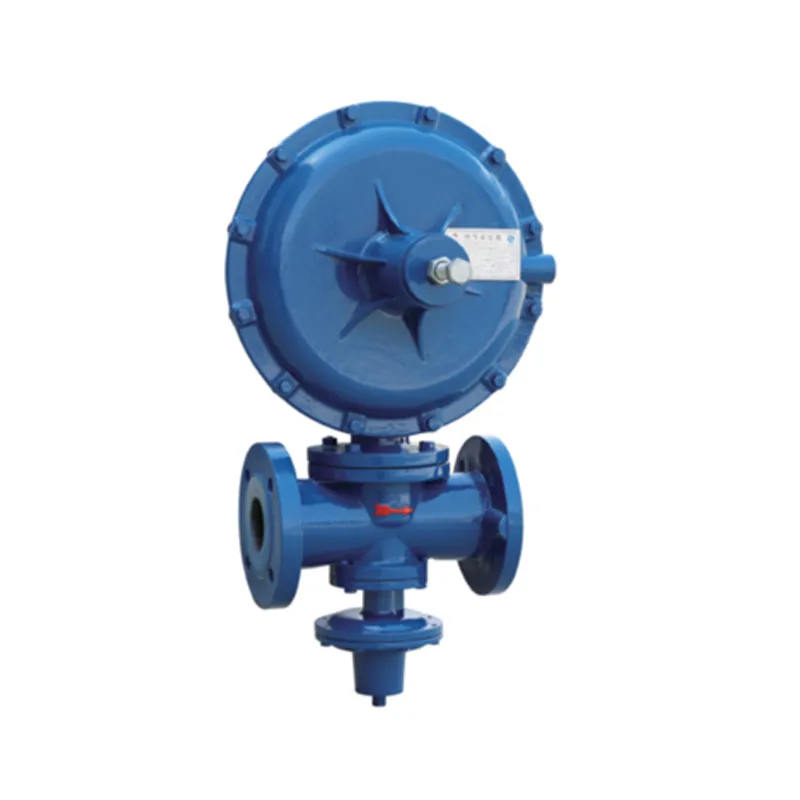
Nov . 08, 2024 07:56
Back to list
Enhancing Gas Efficiency with Innovative Booster Technology Solutions
The Rise of Gas Boosters Enhancing Efficiency in Energy Consumption
As the world grapples with the urgent need for sustainable energy solutions, the quest for innovative technologies that optimize energy consumption has never been more paramount. Among these innovations, gas boosters have emerged as a critical component in enhancing the efficiency of gas systems across various applications. This article delves into the significance, functionality, and advantages of gas boosters in today’s energy landscape.
What is a Gas Booster?
A gas booster is a mechanical device designed to increase the pressure of gas within a pipeline or system. These devices are particularly important in scenarios where gas needs to be transported over long distances or in instances where a higher pressure is required for efficient operation. The primary function of a gas booster is to compress the gas, thus enabling it to flow more efficiently through the system, reducing pressure drops that occur during transportation and improving overall system performance.
Applications of Gas Boosters
Gas boosters find applications in various sectors, including residential, commercial, and industrial settings. In the residential sector, they are commonly used in gas heating systems, enabling households to achieve optimal temperatures efficiently. In commercial applications, businesses utilizing gas for heating, cooking, or powering machinery benefit from gas boosters to ensure consistent and reliable temperature control.
In industrial settings, gas boosters are crucial for processes that require high-pressure gas supplies, such as in manufacturing, natural gas distribution, and power generation. By maintaining adequate gas pressure levels, gas boosters help prevent production downtime, ensuring that operations run smoothly and efficiently.
Advantages of Gas Boosters
1. Improved Efficiency One of the primary benefits of using gas boosters is their ability to enhance the efficiency of gas systems. By increasing gas pressure, they minimize energy loss that occurs due to pressure drops along pipelines. This improvement translates into lower energy costs and reduced emissions, contributing to a more sustainable energy footprint.
gas booster

2. Cost-Effectiveness While the initial investment in a gas booster system may seem significant, the long-term savings on energy costs often outweigh the upfront expenses. By optimizing gas flow and reducing wastage, businesses can significantly lower their operational costs over time.
3. Versatility Gas boosters are highly versatile and can be integrated into existing systems with relative ease. Their adaptability makes them suitable for a wide range of applications, from small residential units to large industrial operations. This versatility allows businesses to upgrade their systems incrementally, making them an attractive option for organizations looking to improve their energy efficiency.
4. Enhanced System Reliability By maintaining consistent gas pressure levels, gas boosters enhance the overall reliability of gas systems. Fluctuations in pressure can lead to equipment malfunctions, process inefficiencies, and safety hazards. Gas boosters minimize these risks by ensuring stable conditions, thereby improving system reliability.
The Future of Gas Boosters
As the global demand for energy continues to rise, the role of gas boosters is expected to grow. Innovations in technology are leading to the development of more efficient and environmentally friendly gas booster systems. Smart gas boosters, equipped with sensors and IoT capabilities, are emerging, providing real-time monitoring and control of gas pressure levels. These advancements not only enhance system performance but also contribute to better energy management practices.
Moreover, with an increasing emphasis on reducing carbon footprints, businesses across various sectors are seeking solutions like gas boosters that align with their sustainability goals. The integration of gas boosters into energy strategies represents a proactive approach to meet demands while reducing environmental impact.
Conclusion
In conclusion, gas boosters play a crucial role in enhancing the efficiency and reliability of gas systems across various applications. With benefits that range from improved energy efficiency to cost-effectiveness, it is no surprise that their adoption is on the rise. As industries and households alike continue to seek sustainable energy solutions, gas boosters will undoubtedly prove to be a valuable asset in the pursuit of optimized energy consumption and environmental responsibility. The future looks promising, as innovations in gas booster technology pave the way for a greener and more efficient energy landscape.
Latest news
-
Safety Valve Spring-Loaded Design Overpressure ProtectionNewsJul.25,2025
-
Precision Voltage Regulator AC5 Accuracy Grade PerformanceNewsJul.25,2025
-
Natural Gas Pressure Regulating Skid Industrial Pipeline ApplicationsNewsJul.25,2025
-
Natural Gas Filter Stainless Steel Mesh Element DesignNewsJul.25,2025
-
Gas Pressure Regulator Valve Direct-Acting Spring-Loaded DesignNewsJul.25,2025
-
Decompression Equipment Multi-Stage Heat Exchange System DesignNewsJul.25,2025

